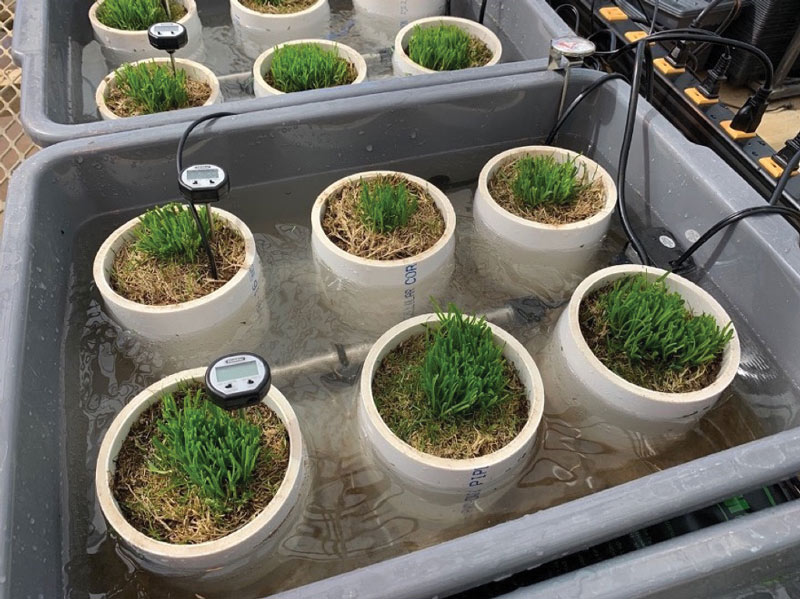
Photo by Devon Carroll
As the Latin name “annua” implies, Poa annua L. (annual bluegrass) is thought to persist via an annual life cycle, yet there are many reports in literature and from golf course superintendents of P. annua surviving perennially.
Considering that P. annua senescence patterns do not align with those of other true annual species such as wheat (Triticum spp.) and corn (Zea mays L.), we hypothesized that P. annua presents itself similarly to other perennial cool-season turfgrass species that can experience premature mortality in summer because of environmental factors.
Four experiments were conducted in Knoxville, Tenn., with the objective of determining environmental factors lethal to P. annua. A field monitoring study assessed 100 individual P. annua plants across 10 microenvironments in golf course fairways and roughs. Forty plants survived the duration of 2020, establishing the existence of perennial P. annua ecotypes. Bioinformatic analysis of climatic factors at the time of plant death for ecotypes that did not survive perennially indicated soil moisture, soil temperature and disease pressure were associated with mortality.
A series of individual experiments was conducted to investigate the lethality of each factor to P. annua. Neither soil moisture nor temperature was fatal to P. annua, except under extreme conditions not typical on golf courses (e.g., 100 F [37.78 C] soil temperature for 12 days under optimum soil moisture, or 95 F [35 C] soil temperature with no irrigation for 19 days).
A field study assessed mortality from disease and observed that P. annua treated with fungicide throughout the summer on a 14-day interval survived year-round, whereas plants not receiving fungicide applications senesced.
These findings support our hypothesis that the name P. annua is a misnomer and that plants are of a perennial life cycle unless environmental conditions are unfavorable.
— D.E. Carroll; J.T. Brosnan, Ph.D.; and B.J. Horvath, Ph.D., University of Tennessee, Knoxville
Editor’s note: Read much more by these researchers on this topic in Current understanding of the Poa annua life cycle.
Darrell J. Pehr is GCM’s science editor.